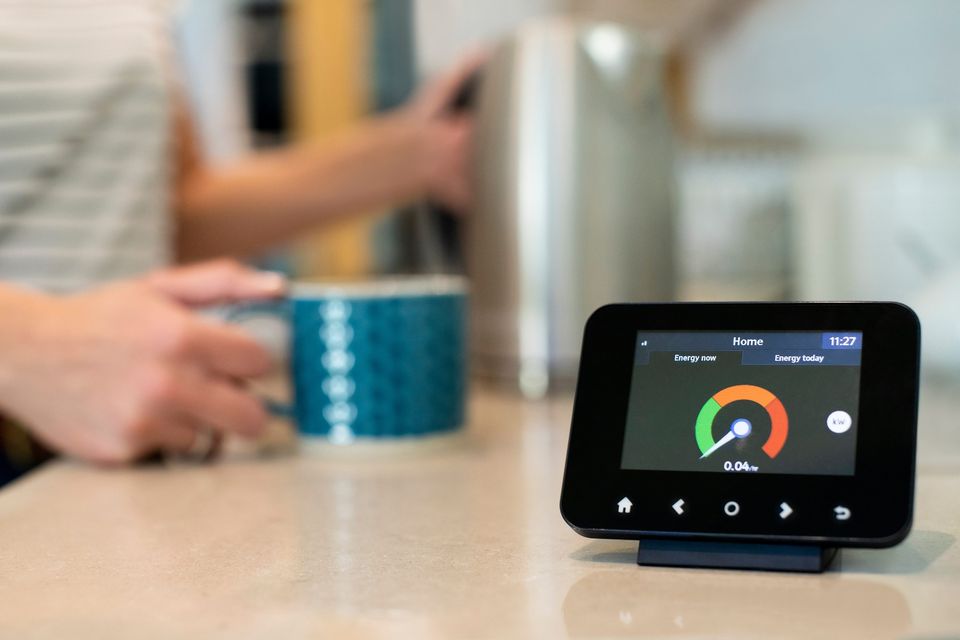Business
Survey Reveals Two-Thirds of Irish Households Struggle with Smart Meters

A recent survey has indicated that a significant portion of Irish households is struggling to effectively use their smart electricity meters. According to the Electric Ireland Sustainability Index, nearly two-thirds of householders, representing 42% of respondents, are unaware of how to fully utilize these devices by switching to a smart meter tariff. This finding comes amidst the rollout of over two million smart meters across homes in Ireland.
The research, conducted by Red C on a sample of 1,026 adults, reveals that only 58% of those with smart meters understand the importance of transitioning to a smart tariff to maximize the benefits of their devices. Despite the potential advantages, just 60% of respondents have made the switch. The initiative aims to reduce emissions and alleviate pressure on the national grid by decreasing electricity consumption, especially from fossil-fuel sources, during peak periods.
Understanding the Benefits of Smart Meters
Smart meters track electricity usage in 30-minute intervals and automatically transmit data to ESB Networks, thus eliminating the need for estimated bills and manual readings. Insights from Electric Ireland’s data indicate that customers who transition to a smart meter plan can reduce their electricity consumption by an average of 4.6%. This reduction is achieved by utilizing the usage insights provided through the associated smartphone applications, allowing users to rearrange their consumption patterns, such as charging electric vehicles and running energy-intensive appliances during off-peak hours.
Despite the advantages, many consumers express concerns regarding the implications of signing up for a smart meter tariff. Once activated, they cannot revert to a traditional non-smart tariff due to industry regulations. A spokesperson for Electric Ireland clarified, “Once you switch to a smart meter tariff, you cannot revert back to a non-smart meter configuration no matter who your supplier is.” However, they noted that the standard 24-hour smart tariff is equivalent to a non-smart tariff, albeit with the added benefit of precise billing based on half-hourly data.
Consumer Awareness and Education Needs
The survey findings highlight a critical gap in consumer knowledge. Despite 70% of respondents expressing a desire to better understand their energy use, many remain uninformed about the functionalities of smart meters. Noeline Gibbons, Head of Residential at Electric Ireland, emphasized that understanding how to switch to a smart meter plan is essential for consumers. She stated, “This is when the smart meter begins to work better for them, giving insights into how they are using their electricity and helping them reduce their usage and costs.”
Former energy minister Denis Naughten has been vocal about the complexities surrounding smart meters, suggesting that using them often requires significant knowledge. He remarked last year that “you would want a degree to work out” how to operate these devices, indicating a widespread sentiment among consumers who find them overly complicated.
As the adoption of smart meters continues to expand, the call for enhanced consumer education becomes increasingly urgent. Stakeholders must work to bridge the knowledge gap, ensuring that consumers can fully benefit from the energy-efficient technologies available to them.
-

 Top Stories2 months ago
Top Stories2 months agoTributes Surge for 9-Year-Old Leon Briody After Cancer Battle
-

 Entertainment4 months ago
Entertainment4 months agoAimee Osbourne Joins Family for Emotional Tribute to Ozzy
-

 Politics4 months ago
Politics4 months agoDanny Healy-Rae Considers Complaint After Altercation with Garda
-

 Top Stories3 months ago
Top Stories3 months agoIreland Enjoys Summer Heat as Hurricane Erin Approaches Atlantic
-

 World4 months ago
World4 months agoHawaii Commemorates 80 Years Since Hiroshima Bombing with Ceremony
-

 Top Stories2 months ago
Top Stories2 months agoNewcastle West Woman Patricia Foley Found Safe After Urgent Search
-

 Top Stories4 months ago
Top Stories4 months agoFianna Fáil TDs Urgently Consider Maire Geoghegan-Quinn for Presidency
-

 World4 months ago
World4 months agoGaza Aid Distribution Tragedy: 20 Killed Amid Ongoing Violence
-

 World4 months ago
World4 months agoCouple Convicted of Murdering Two-Year-Old Grandson in Wales
-

 World4 months ago
World4 months agoAristocrat Constance Marten and Partner Convicted of Infant Murder
-

 Top Stories3 months ago
Top Stories3 months agoClimbing Errigal: A Must-Do Summer Adventure in Donegal
-

 Top Stories3 months ago
Top Stories3 months agoHike Donegal’s Errigal Mountain NOW for Unforgettable Summer Views









